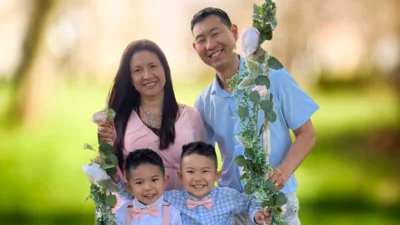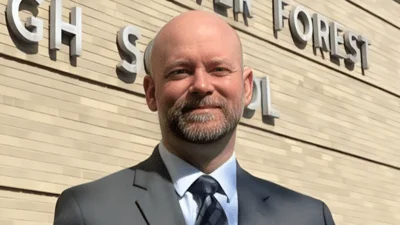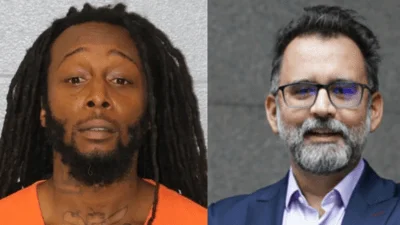State Representative Norma Hernandez | Illinois General Assembly
State Representative Norma Hernandez | Illinois General Assembly
According to the Illinois General Assembly site, the legislature summarized the bill's official text as follows: "Amends the Mental Health Early Action on Campus Act. Provides that the expert panel designated by the board of trustees to develop and implement policies and procedures shall be comprised of at least 2 administrators, 2 members of faculty, and one mental health professional. Requires each public college or university to provide at least 3 on-site licensed clinical professional counselors or licensed clinical social workers."
The following is our breakdown, based on the actual bill text, and may include interpretation to clarify its provisions.
In essence, this bill amends the Mental Health Early Action on Campus Act by requiring each public college or university in Illinois to establish a panel of experts to develop policies and procedures for identifying and addressing the needs of students exhibiting mental health symptoms. These policies must also promote understanding of legal protections under Section 504 of the Rehabilitation Act of 1973 and the Americans with Disabilities Act. The bill mandates that resident assistants, advisors, and campus security complete a national Mental Health First Aid training program. Additionally, public colleges and universities must form partnerships with local mental health service providers and ensure on-campus and telehealth support to achieve a staffing ratio of one clinical staff member for every 1,250 students. The Technical Assistance Center will review and propose updated benchmarks every five years.
Hernandez graduated from Triton Community College in 2013 with an AA and again in 2017 from Aurora University with a BA.
Norma Hernandez is currently serving in the Illinois State House, representing the state's 77th House District. She replaced previous state representative Kathleen Willis in 2023.
Bills in Illinois follow a multi-step legislative process, beginning with introduction in either the House or Senate, followed by committee review, floor debates, and votes in both chambers before reaching the governor for approval or veto. The General Assembly operates on a biennial schedule, and while typically thousands of bills are introduced each session, only a fraction successfully pass through the process to become law.
You can read more about bills and other measures here.
| Bill Number | Date Introduced | Short Description |
|---|---|---|
| HB3385 | 02/07/2025 | Amends the Mental Health Early Action on Campus Act. Provides that the expert panel designated by the board of trustees to develop and implement policies and procedures shall be comprised of at least 2 administrators, 2 members of faculty, and one mental health professional. Requires each public college or university to provide at least 3 on-site licensed clinical professional counselors or licensed clinical social workers. |
| HB3401 | 02/07/2025 | Amends the Board of Higher Education Act and the Public Community College Act. Provides that a student member who serves on the Board of Higher Education or the Illinois Community College Board shall receive a scholarship award of $500 for each semester in which the student member is enrolled and serving. |
| HB3411 | 02/07/2025 | Appropriates $3,000,000 from the General Revenue Fund to the Secretary of State for a recurring, permanent grant program for Illinois academic libraries. These grants shall be applied toward Open Education Resources. Effective July 1, 2025. |
| HB3430 | 02/07/2025 | Creates the Nonconsensual Towing Act. Creates the Commercial Vehicle Towing Advisory Committee. Sets forth members, terms, compensation, meetings, and record keeping. Provides that the Committee shall: (1) establish rules and standards for the inclusion of a towing and recovery service on the tow list; (2) establish statewide maximum towing and storage rates for nonconsensual tows; (3) require the towing and recovery service to ban the use of per-pound billing for nonconsensual towing; (4) publish a Towing Service Standard Manual; and (5) collect and compile data and information on the number of people who have been towed nonconsensually and the areas where nonconsensual towings have occurred. Requires a towing and recovery service to allow an owner of a commercial motor vehicle or a designee of the owner of the commercial motor vehicle to access the vehicle in a reasonable manner as established by rules adopted by the Committee. Allows a law enforcement officer to use the services of the a tow list. Provides that it is unlawful for: (1) a law enforcement officer to receive compensation or receive any other incentive to select a particular towing and recovery service from the list, hold any financial interest in a towing and recovery service, and recommend any towing and recovery service in the performance of his or her duties; (2) any member or employee of the Committee, Department of Transportation, or Secretary of State to receive compensation from a towing and recovery service for the privilege of being included on the tow list; (3) a towing and recovery service to pay money or other valuable consideration for the privilege of nonconsensual towing commercial motor vehicles; and (4) a towing and recovery service to employ or otherwise compensate individuals whose primary task is to report the presence of unauthorized, improperly, or illegally parked commercial motor vehicles for the purpose of towing or removal and storage. Provides that before a towing and recovery service connects a commercial motor vehicle to a tow truck for a nonconsensual tow, the towing and recovery service shall document the vehicle's condition and the reason for the tow. Prohibits a towing and recovery service from using vehicle immobilization devices except under the direction of law enforcement. Repeals the Act on July 1, 2030. Effective July 1, 2025. |
| HB3434 | 02/07/2025 | Amends the Medical Assistance Article of the Illinois Public Aid Code. Provides that subject to federal approval, within 12 months after the effective date of the amendatory Act, nutrition care services and medical nutrition therapy provided by a registered dietitian licensed under the Dietitian Nutritionist Practice Act who is acting within the scope of his or her license shall be covered under the medical assistance program. Provides that the covered services may be aimed at prevention, delay, management, treatment, or rehabilitation of a disease or condition and include nutrition assessment, nutrition intervention, nutrition counseling, and nutrition monitoring and evaluation. Requires the Department of Healthcare and Family Services to submit a Title XIX State Plan amendment, if required, to implement the amendatory Act. Provides that the Department shall adopt rules to implement the amendatory Act, including rules that ensure coverage for individuals with chronic conditions without prior authorization. |






 Alerts Sign-up
Alerts Sign-up